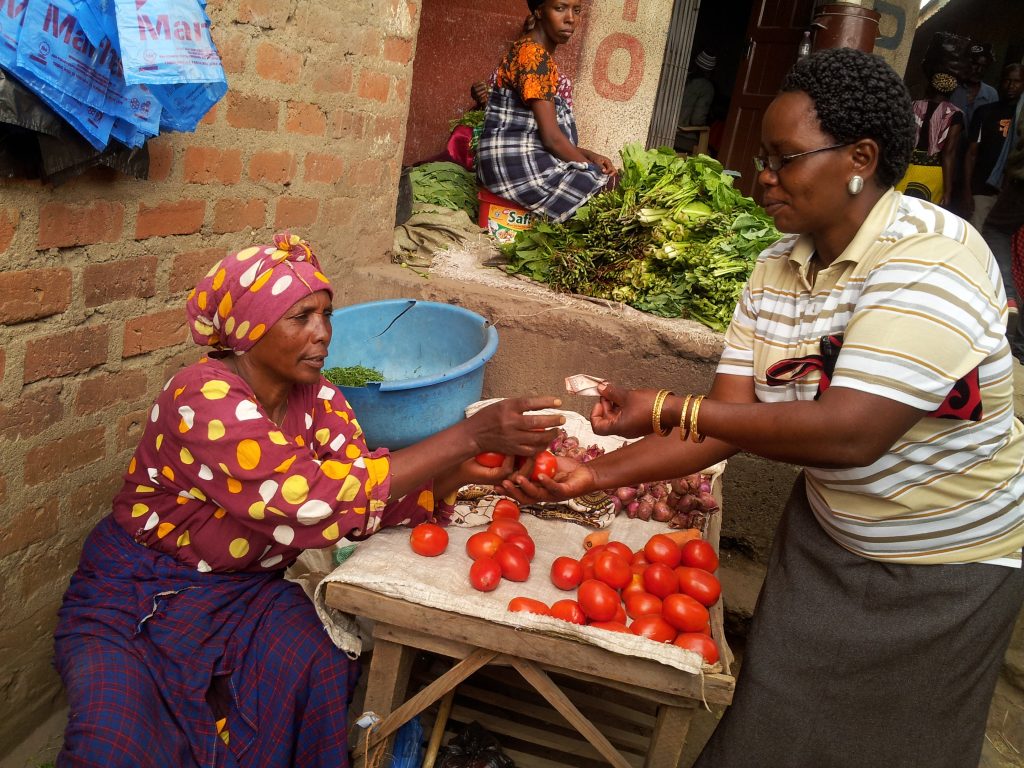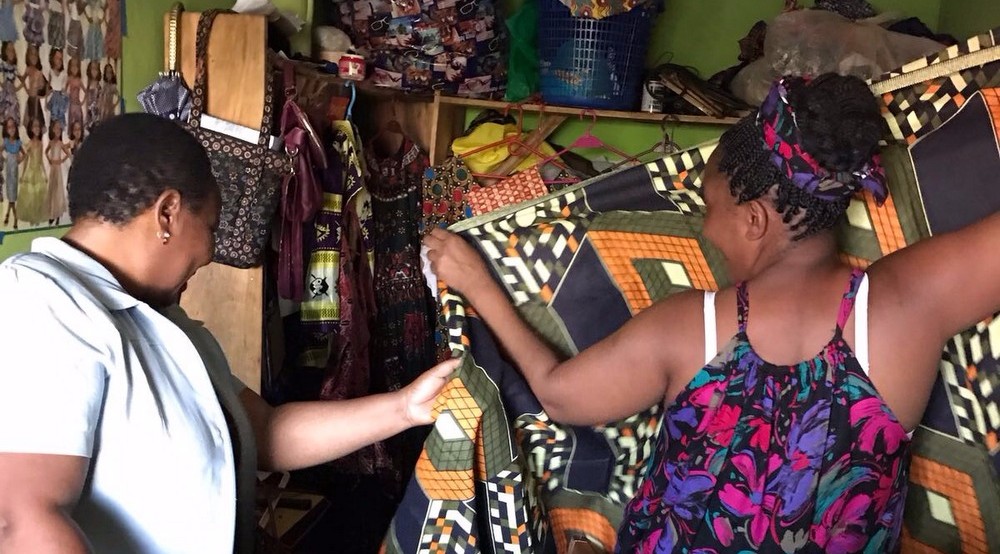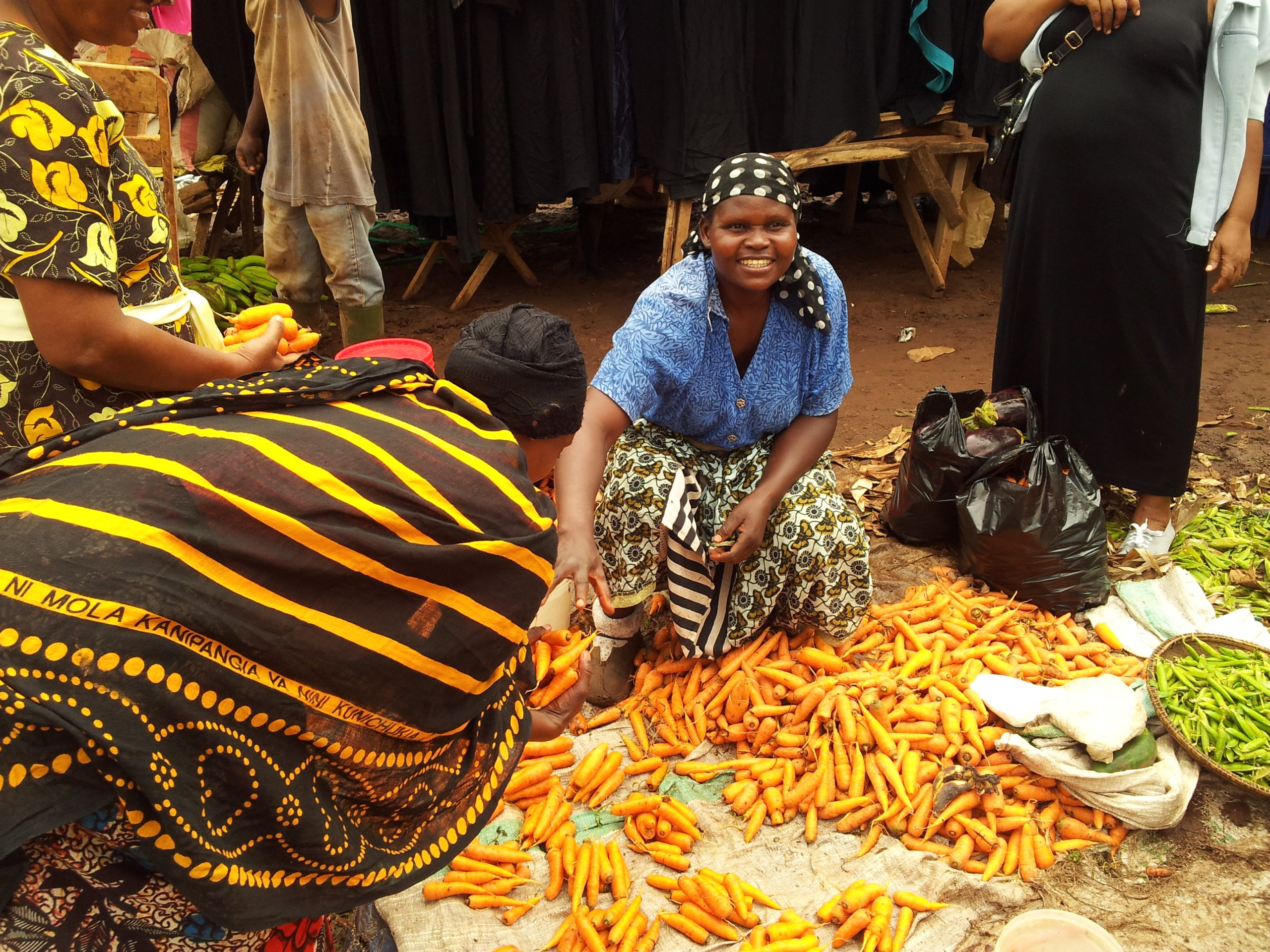Mondo in Tanzania
Mondo’s programme in Tanzania provides business training and small grants of around £100 to women, most of them widows, who have children and other dependents in their care. Groups of women are trained together and given the skills and ongoing mentoring to ensure they can set up a successful business. Grants are then awarded to them so they can buy the stock and materials to get started. Running a successful business allows them to educate their children, afford better living conditions and provide more and higher quality food.
This is not, however, a traditional micro-finance programme. The women who so badly need the help we provide are not suitable candidates for micro-finance loans and would be unable to make repayments at such an early stage of their enterprise. We therefore provide grants, which enable them to start up and, through their hard work and our support, help them to become self-sufficient. Only then can we contemplate loans to enable them to grow their businesses into more sustainable ventures. We have a strong committment to evaluating the impact of the programme to ensure we continually improve and respond to changing local conditions.
In addition, we’ve also built and resourced schools to ensure students have a safe environment in which to learn and grow.
So how does our flagship programme work?
Choosing our Recipients
We work with local organisations such as churches and clinics who recommend vulnerable women who have dependents, are well enough to work and have the motivation to do so.
Compiling the Business Plan
Our local team then helps the selected recipients to put together a simple business plan having first run training sessions in basic business skills such as record keeping and provisioning.
Mentoring and Support
We organise a mentoring programme to follow-up with the recipients on the ground, initially on a weekly basis and then fortnightly. The mentoring also allows the recipients to form their own support groups, allowing them to share information and discuss approaches to their businesses.
Evaluation and Assessment
Once the enterprises are up and running, we evaluate the impact of the grants over a six to twelve month period and select suitable candidates for top up loans.
Before this grant I was waiting to die. Now I have this café, I have something to work for. I can see the future.
These words were spoken by one of many recipients in Tanzania living in vulnerable conditions whose lives have been transformed by Mondo’s programme
Building and Equipping Schools
In addition to our flagship grants and loans programme, Mondo is acutely aware of the difficulties faced by schools in the areas in which we operate. Around Arusha and Moshi, we found primary schools with well over 1000 pupils but with only six or seven classrooms. An average of 150+ pupils per class is not uncommon! Not only are the numbers in some classes enormous, but they mostly lack adequate desks. A standard two-pupil desk and bench will often be occupied by five children!
In close consultation with the Education Department, we decided to select ten of the most crowded schools and to carry out a staged building programme. Our aim was to reduce the overcrowding by at least a third. This meant building at least one and sometimes two new classrooms in the selected schools.
Over the course of the last decade, the classrooms we have built in Tanzania have helped over 15,000 students receive a better education.
Longido Blind Unit
Longido school is a primary boarding school catering largely for the local Masai community around 85km north of Arusha, in Northern Tanzania. When the students enter school they go through an induction programme including orientation and mobility, daily living skills and an introduction to school life. After 6 months the students start to be taught to read and write braille dots. They also join the other children in the school for classes in other subjects.
Our staff (national and international) visit on a regular basis and understand the challenges this remote, and under-equipped school has to provide a relevant and beneficial education to its blind and partially-sighted pupils. We are convinced that with this relatively small input we can greatly improve the educational and life experience of these children.





